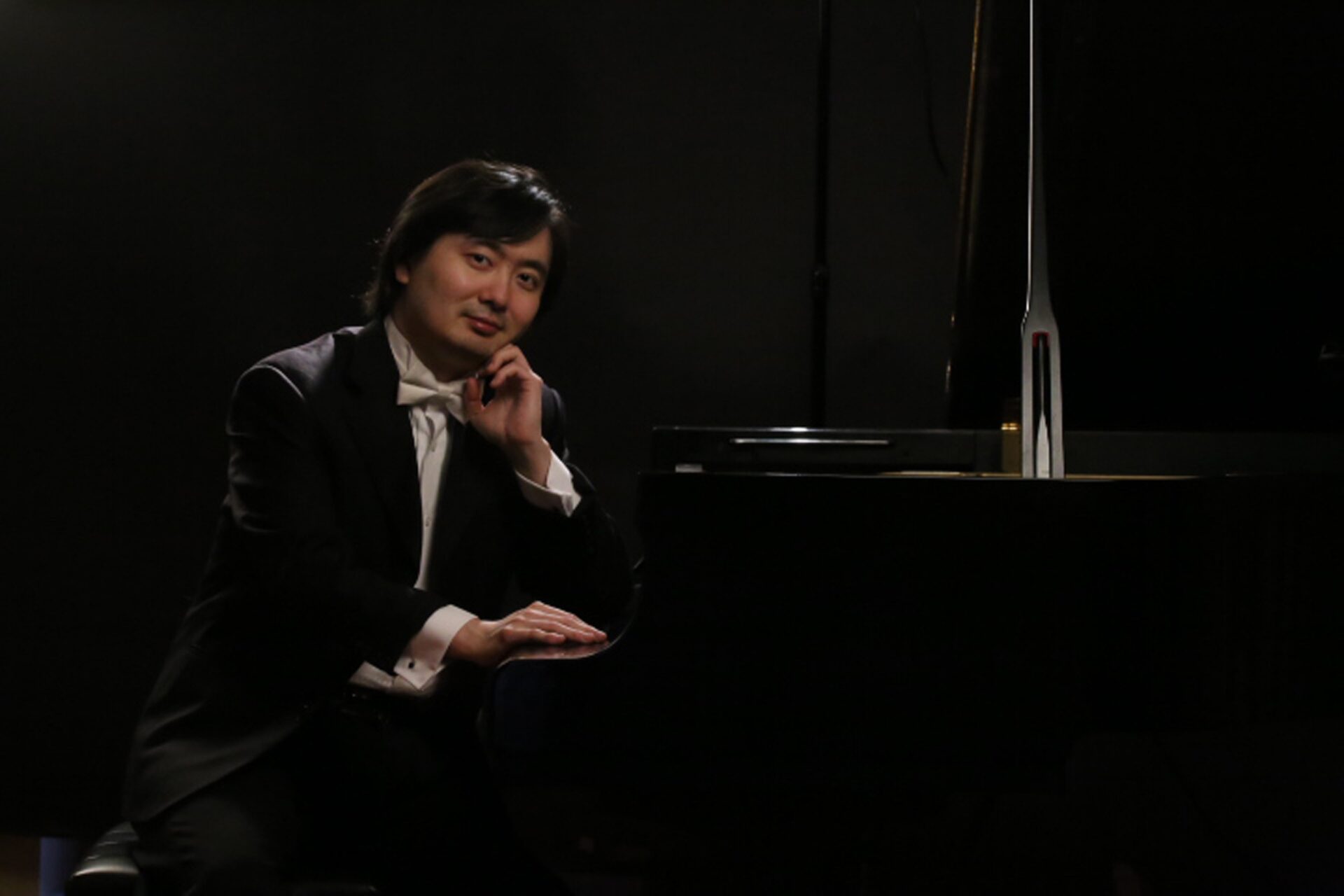
Released in 2020, the ATMA Classique debut album by Canadian pianist Sheng Cai featured music by Franz Liszt and was met with unanimous praise from critics around the world. Born in China, Sheng studied at Shanghai Conservatory of Music and was a top prize winner at the 1998 National Competition. The following year, his family moved to Canada where he began studying at the Royal Conservatory of Music in Toronto. He earned his Bachelor of Music Degree under full scholarship at New England Conservatory in Boston. Since then, Sheng has performed in many prestigious venues around the world.
A top-prize winner at many competitions throughout his teenage years including the Montreal Symphony Orchestra Piano Competition, Toronto Symphony Piano Competition, and The International Young Artists Competition of Colorado, Sheng Cai was also the youngest finalist and special prize winner at the Bösendorfer International Piano Competition. He was the youngest finalist at Hilton Head International Piano Competition in the US and made his debut with the Toronto Symphony Orchestra at just fifteen years of age.
We are looking forward to releasing Sheng’s next album in October 2021, which will be devoted to piano works by Edvard Grieg, Norway’s most famous composer. We caught up with Sheng recently to talk about music, the life of the concert pianist, and the future. Read our Q&A here:
How did music first enter your life?
My parents are music lovers. They enjoy classical music and were eager to have me try singing and piano when I was young. When I was about 11 and first entered the Royal Conservatory in Toronto, I began to show talent and caught the audience’s attention. The thought of a musical career began afterwards.
Who has been your most important mentor, musical or otherwise?
During my student years I studied with various teachers in both Canada and in the US. One of my most important Canadian teachers was Anton Kuerti, who introduced me to the 32 Beethoven sonatas when I was in my mid teens. When I was about 14, he invited me to attend the editing sessions for his new Beethoven sonatas recordings, even though I was just getting familiar with the repertoire at the time. He’s a great musician with a special affinity for the German classics. I also studied various other genres of repertoire with other teachers in the US.
Great composers are also a source of inspiration for me, especially the great romantic composers Through their music, you learn a lot about the meaning of life during their era and how it relates to the modern values of our current time.
Your biography mentions that you also compose music. Can you tell us more about that and describe your compositions?
I have so far composed shorter works for the piano, and they are written whenever I have spare time to compose. They are somewhat in the romantic style but with touches of modern influences in tonality. Just before the Covid pandemic started, I performed a cadenza I wrote for Gershwin’s Rhapsody in Blue. A conductor from Singapore invited me to play with an orchestra in central China and gave me a chance to premiere it there and it was well received in the press. I do plan to perform more of my own music when I feel ready to present it to the public.
Your new ATMA recording is devoted to the music of Edvard Grieg. What is it about his music that inspired you to devote a whole album to it? Do you have a favourite piece?
I have always felt that Grieg is one of the great composers for the piano whose works have been neglected by many professional pianists. In my opinion, some of the works on this album, such as the Ballade in G minor, the Sonata, and the Op.19 piano pieces could be ranked as being as great as the major works of Chopin, Liszt, or Brahms. His use of pianistic texture, expressive writing, and his own unique soundscape makes his works worth studying and performing. Rachmaninoff considered Grieg’s works among the greatest ever written for piano, and Grieg influenced many other composers, such as the American Edward MacDowell and many Russian composers, including Tchaikovsky. From this new album, I would say the Ballade in G minor op.24 is perhaps my favourite. At the beginning of the 20th century, it was championed by many pianists such as Godowsky, Rubinstein, and Rachmaninoff, and deserves a worldwide revival in this century.
You’re known for your creative programming and especially for championing neglected works by overlooked composers such as Busoni, Enescu, Kabalevsky, etc. Why is this mission important to you?
I feel it is very important to present neglected highlights of the piano literature, especially from composers whose music I feel close to their works have not been recognized enough by the public and professional musicians yet. Over the past three or four years, I have also been promoting works by Villa Lobos, Medtner, and Kapustin (who passed away last summer), and the performances have been well received. No composer is a genius 24 hours a day, and some of the less famous composers have also written works of a very high artistic and spiritual level. I try to mix these in along with the so-called standard/popular works in programming.
The pandemic has caused so much disruption for live concerts. When will your first performance for a live audience take place?
I am playing a recital in September for the Arts and Letters Club in Toronto, which will feature some of the music by the Torontonian composer Oskar Morawetz. My first concerto performance with orchestra will be Rachmaninoff 4th piano concerto this December in Germany. I have had at least a dozen concerts postponed or cancelled since the pandemic began and I am sure most performers are having the same experience.
You have quite a large following on Facebook and Twitter. How important it is for classical artists to be active on social media and create a strong presence on these platforms?
I feel it is important to have an audience on social media in order to introduce the new generation to classical music and to great music they may not have heard before, especially now during the pandemic because many concerts are virtual. People write to me on these platforms and want to hear me perform live and are sometimes willing to drive to the next location where I am performing,
What are the most common misconceptions people have about the life of a concert pianist?
They often think being a concert pianist is like being a celebrity. What we are doing as pianists is not only to bring culture to people who like classical music, but also to leave a strong legacy and reference performances for future generations. For example, Glenn Gould was one of the first pianists to perform and record Bach’s Goldberg Variations on piano and that work has since become a staple of the repertoire worldwide.
If music had not been possible as a career, what would you most likely be doing now?
I could imagine myself being an actor in films. When I was younger, I wanted to try acting various roles in plays or movies. Acting is very similar to music because it portrays a wide range of vivid characters in our society. If I had not been a pianist, I would probably still be in the arts in other forms.
What upcoming projects are on the horizon for you?
I have many recording projects planned. The next will be a new recording for ATMA Classique of music by Sergei Rachmaninoff. Among other works, I will be recording the first version of his 2nd sonata Op.36 written in 1913, which is rarely heard. This album will include my own transcription of excerpts from his Aleko, his first opera. I also plan to record some Canadian music in the future.
Interview by Luisa Trisi, Big Picture Communications
